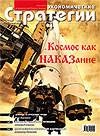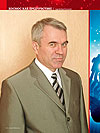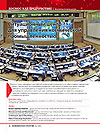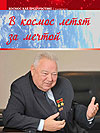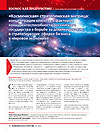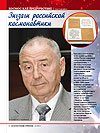The Future of Humanity: Avatars and Cyborgs?
Over half a century passed since a man first visited the extraterrestrial space. From this moment — April 12, 1961 — mankind began its placement in outer space, inevitability of which was predicted by the founder of theoretical astronautics Konstantin E. Tsiolkovsky. Since then, more than 500 people have visited the space, large-scale space experiments are conducted, programs of conquering the Moon and Mars are being developed. In order to survive humanity must be ready to space expansion, believes cosmonaut-investigator Sergey Krichevsky, Doctor of Philosophy and Doctor of Technical Sciences, professor of the Russian Academy of Public Administration under the President of the Russian Federation. However, for the time being we are completely unprepared to settling outside the Earth.


